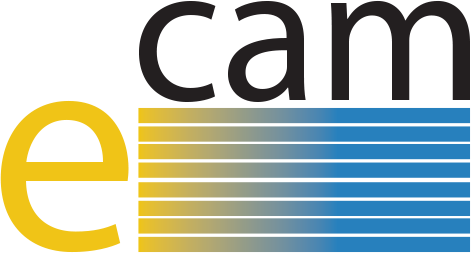https://training.e-cam2020.eu/
- Collects the content captured at our Extended Software Development Workshops (ESDWs)
- Generates online training modules for each ESDW
- Is a repository for the data associated with our events
- Contains tutorials on programming best practices to develop software for extreme-scale hardware
Take a tour
Connect to https://training.e-cam2020.eu/E-CAM
Sign up or log in* (you can use your GitLab account if you have one). When accessing the space for the first time an automated request is sent to our administrator to enable you access. This might take some time so please be patient. You will be notified by e-mail when your access is granted.
Once granted access, from https://training.e-cam2020.eu/E-CAM you can see all the collections available in the E-CAM space. Collections contain multiple datasets and their associated files related to our activities. You are ready to start navigating throughout our collections!
*Some content from our training portal is public and can be accessed without creating an account. For an overview see here.
[/expand] [expand tag=”h3″ title=”Terminology”]This infrastructure is built on top of Clowder (developed at NCSA, National Centre for Supercomputing Applications), which is a research data management system designed to support any data format and multiple research domains. For those new to this service, here are the definitions of the most frequently used terms.
Single files are collected into Datasets, which are a group of files that through some defined relationship or corresponding metadata are strongly tied together and not representable otherwise by the individual files. Datasets are what we expect our captured lectures to be (made up of the associated videos, lecture materials, reading materials, tutorial content and software requirements). Collections are a user defined group of Datasets (and potentially other Collections). A Space is a group of Collections and Datasets with defined user access rights. Spaces are used to share data within Datasets and Collections with other users, in our case this will be how we will restrict access to (some of) our material [1].
[/expand] [expand tag=”h3″ title=”Instructions to ESDW participants”]Access the portal as described in the “Access the E-CAM Online Training Infrastructure” section. Choose collection Extended Software Development Workshops (ESDW), and then the ESDW that you will participate, or a past ESDW you have attended.
For each ESDW, preparatory material will be available containing training material specific for that ESDW and software development best practices. Sometimes, an assessment form might be available to assess your readiness for the upcoming ESDW. Please complete it.
To save time at the ESDW, we recommend that you study the material before the event.
[/expand]Public Lectures
Explore our public lectures by interest area.
Classical Molecular Dynamics
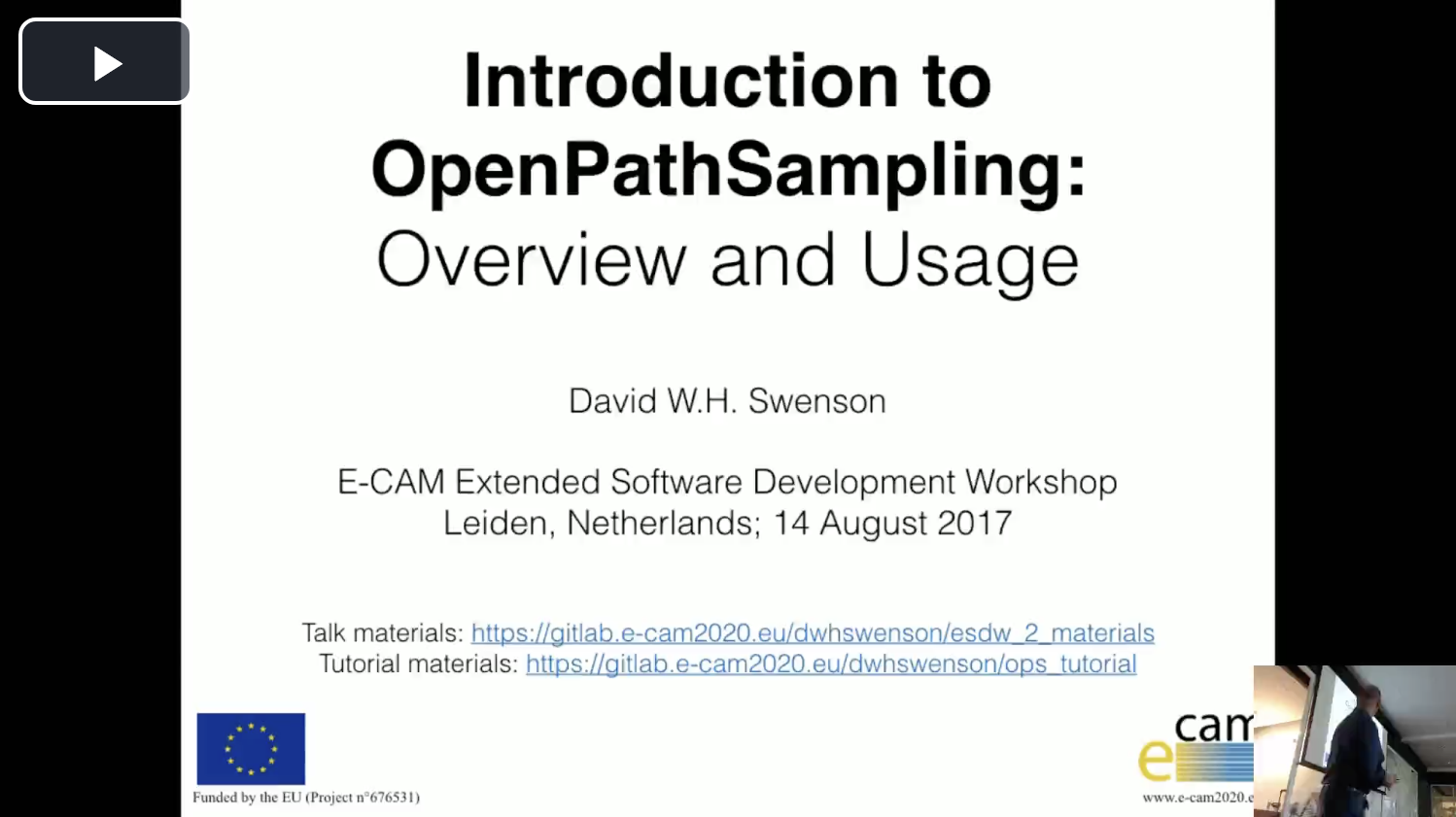
Introduction to OpenPathSampling, David W.H. Swenson
E-CAM Extended Software Development Workshop
Leiden, August 2017
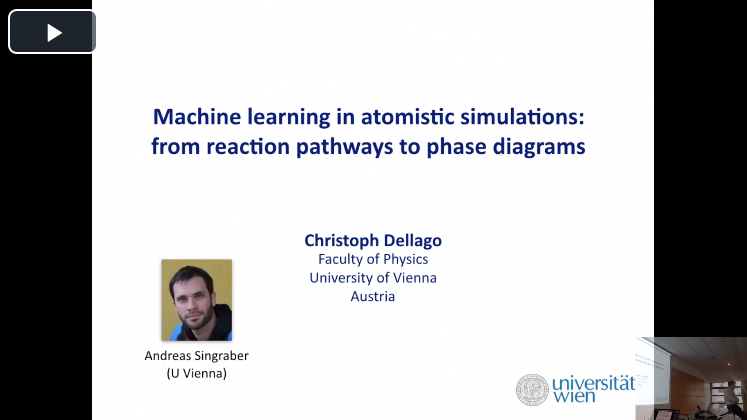
Machine Learning in Atomistic Simulations, Christoph Dellago
E-CAM ESDW: Topics in Classical MD
ENS Lyon, April 2019
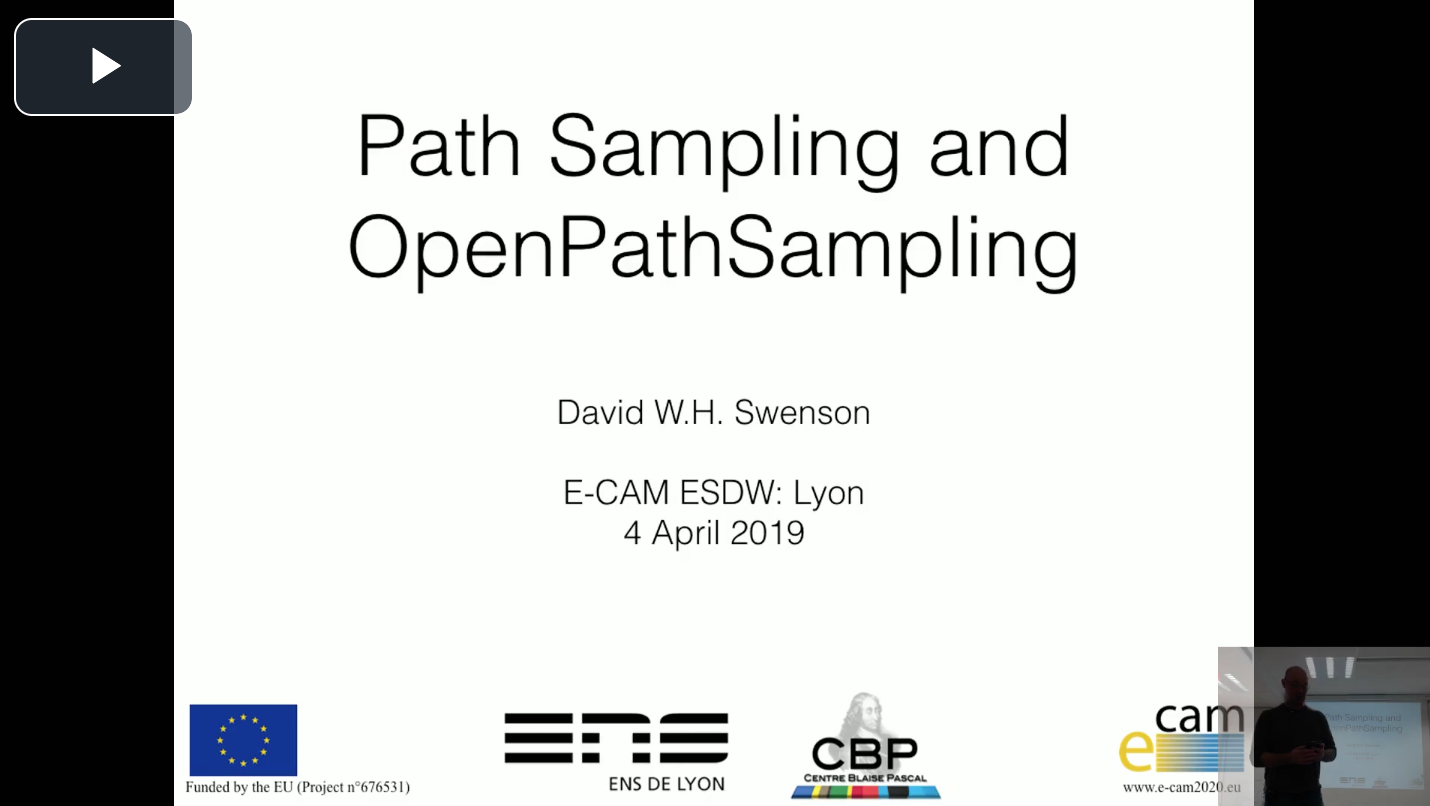
Path Sampling and OpenPathSampling, David W.H. Swenson
E-CAM ESDW: Topics in Classical MD
ENS Lyon, April 2019
Log in to see other lectures tagged under Classical MD.
Electronic Structure
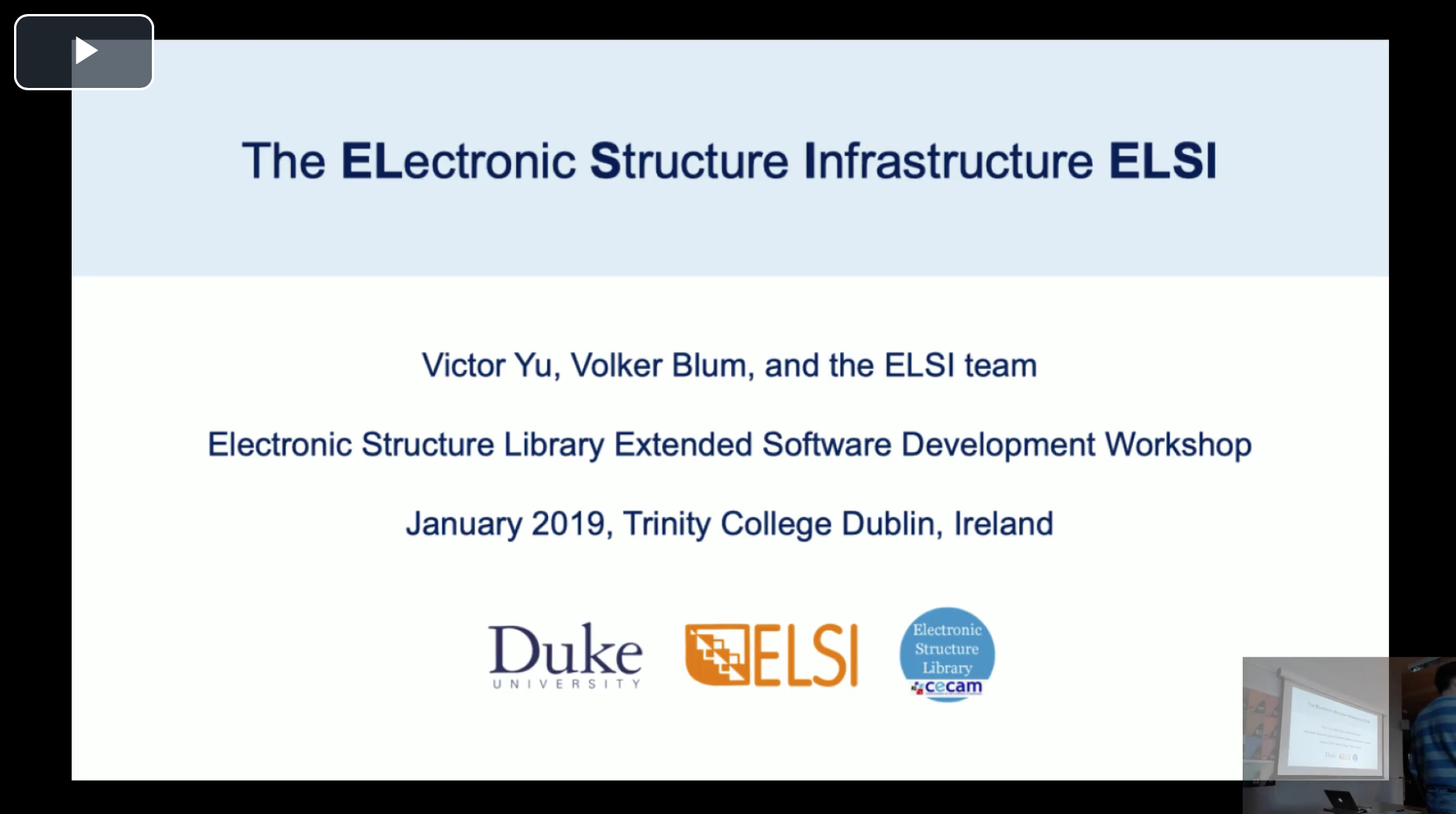
The Electronic Structure Infrastructure ELSI, Victor Yu
Electronic Structure Library ESDW
UCD, January 2019
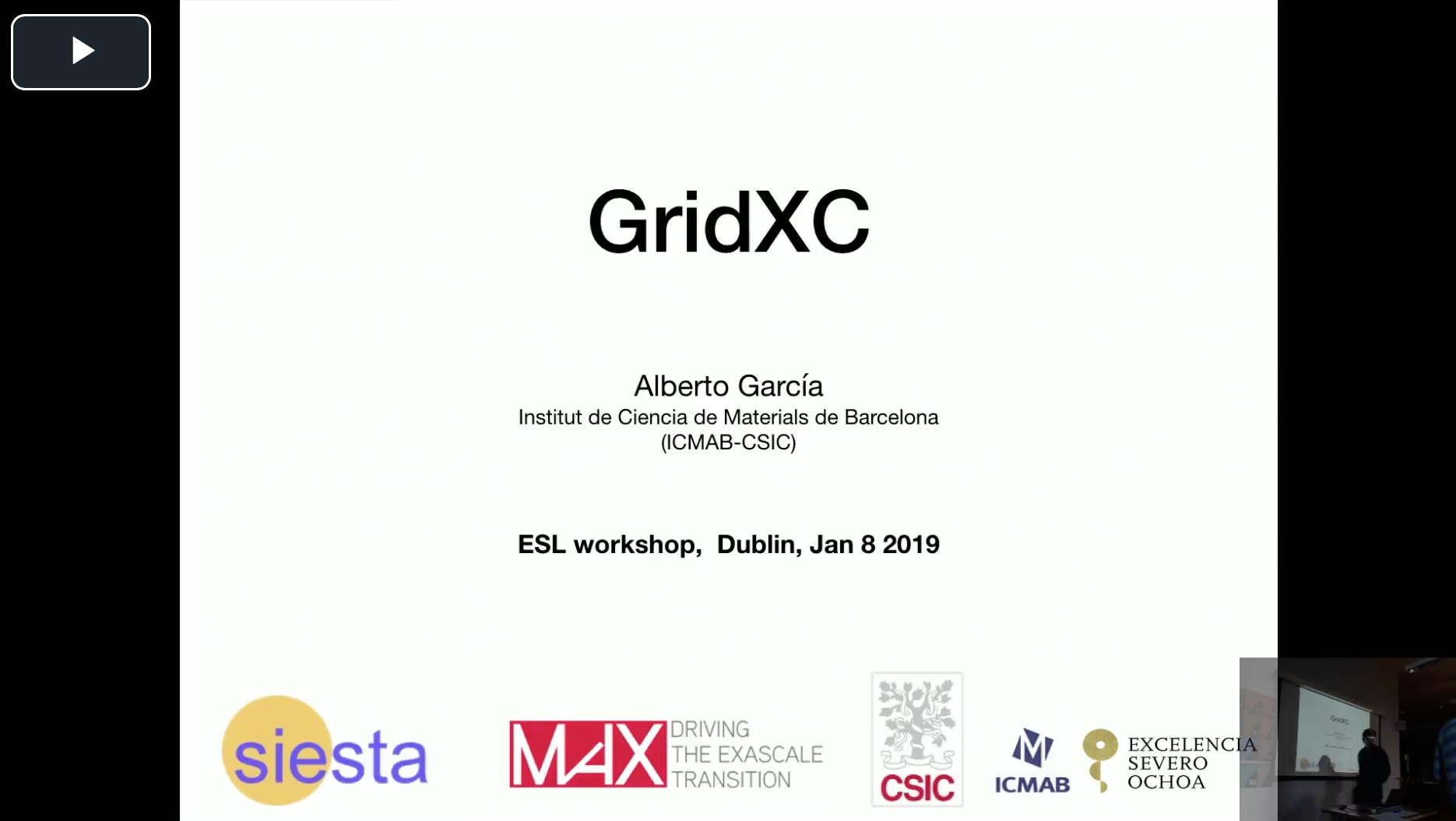
GridXC, Alberto García
Electronic Structure Library ESDW
UCD, January 2019
Log in to see other lectures tagged under Electronic Structure.
Quantum Dynamics
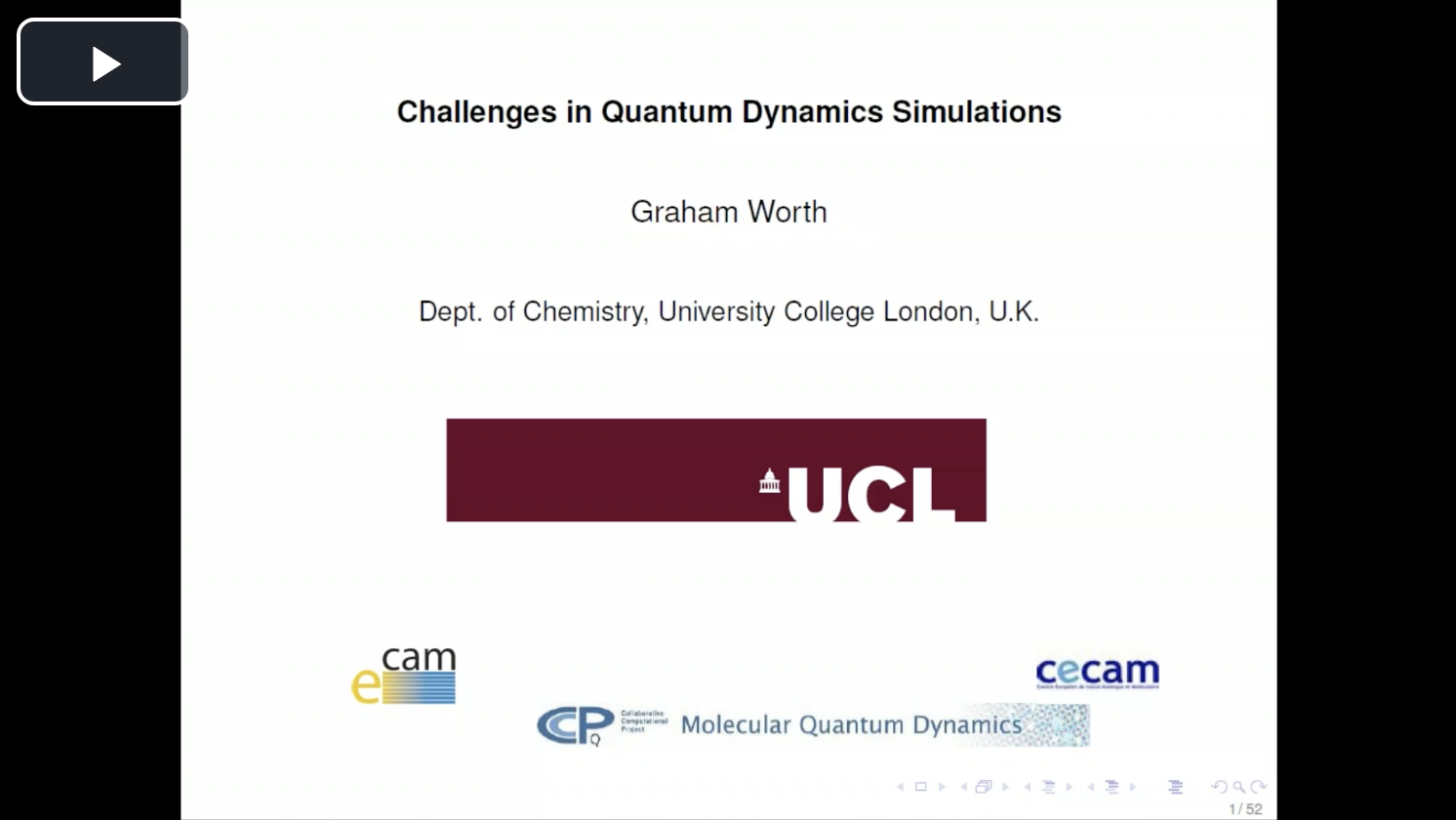
Challenges in Quantum Dynamics Simulations, Graham Worth
E-CAM ESDW in Quantum Dynamics
Saclay, June 2018
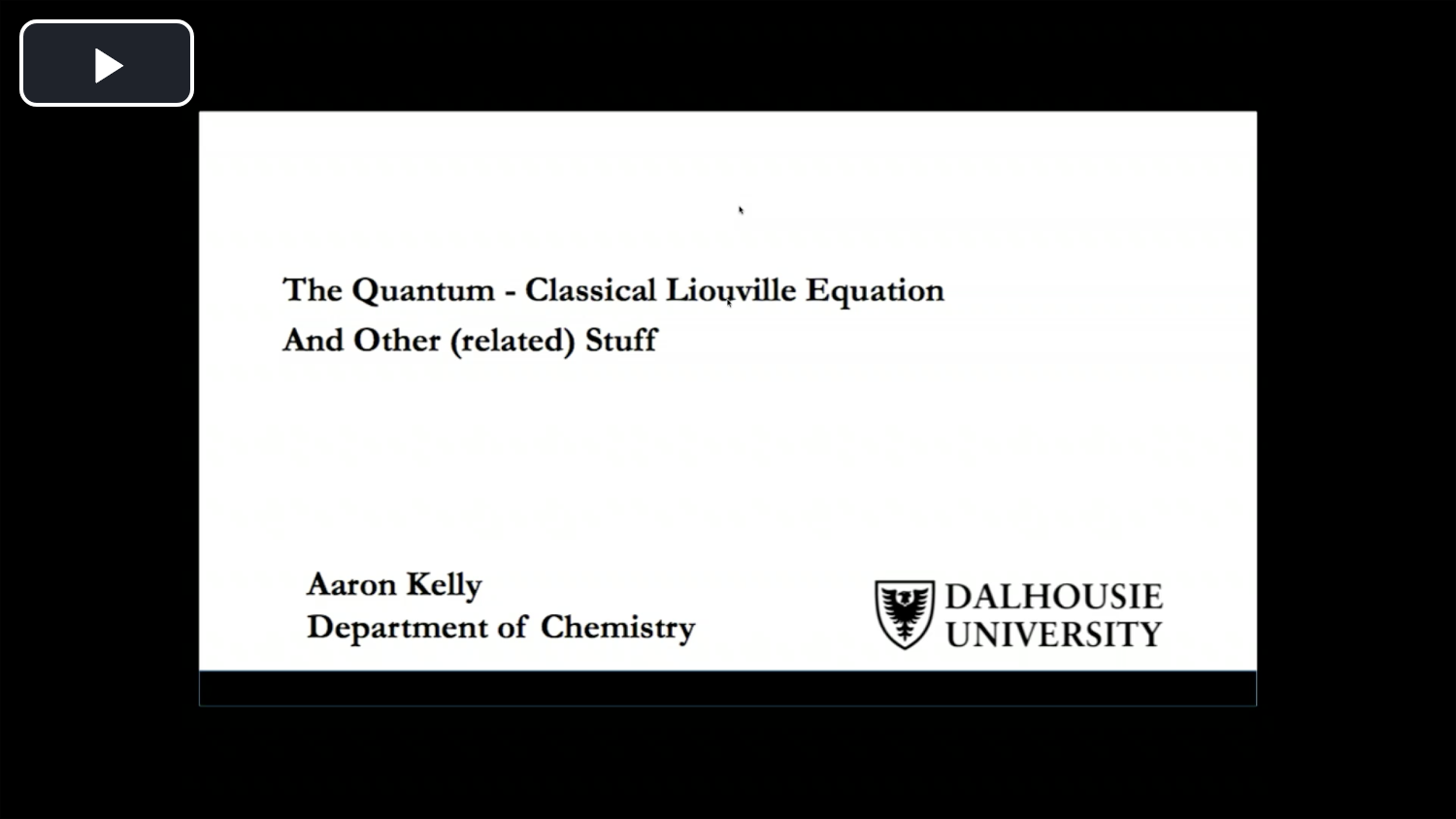
The Quantum-Classical Liouville Equation, Arron Kelly
E-CAM ESDW in Quantum Dynamics
Saclay, June 2018
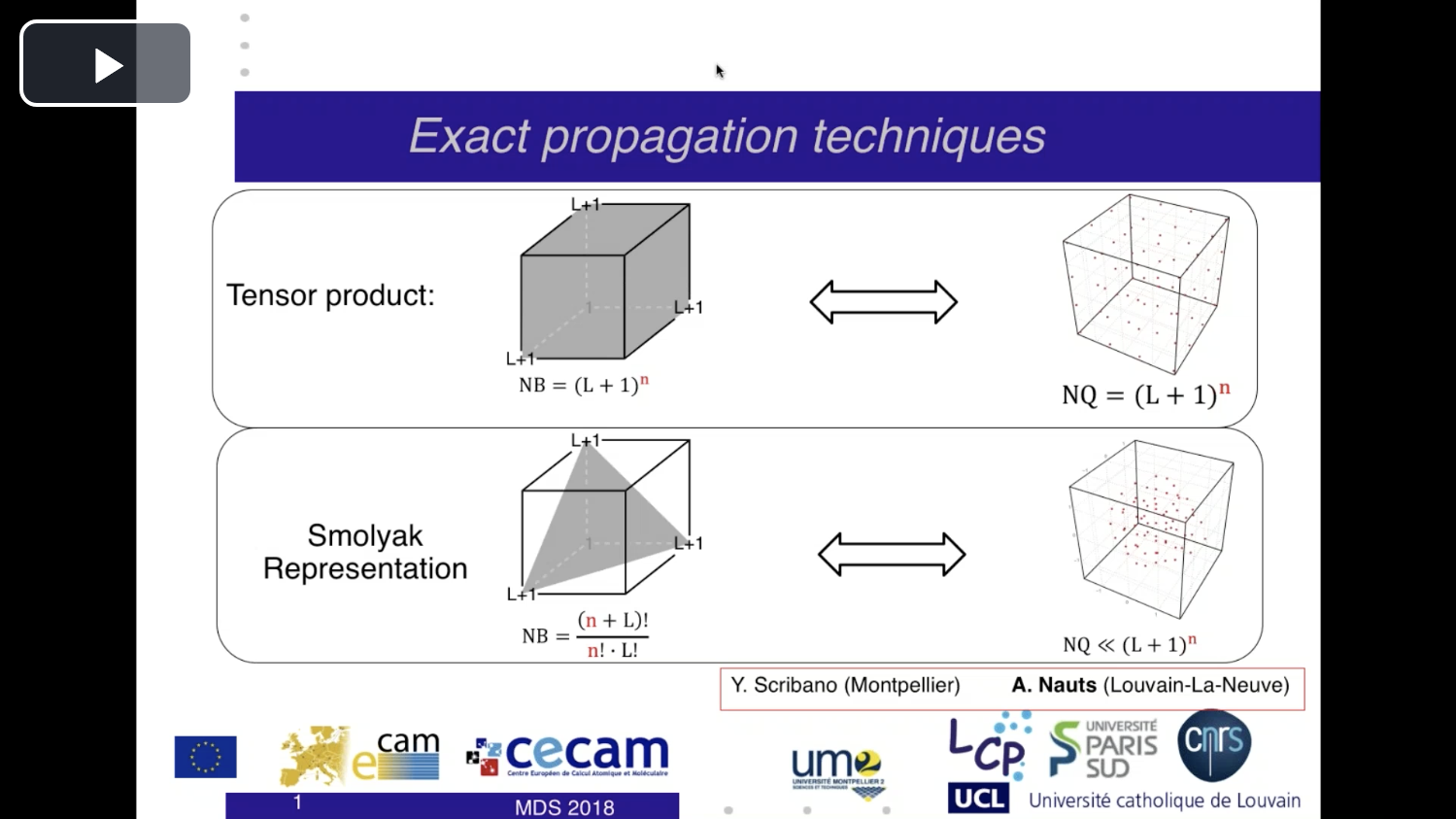
Exact Propagation Techniques, David Lauvergnat
E-CAM ESDW in Quantum Dynamics
Saclay, June 2018
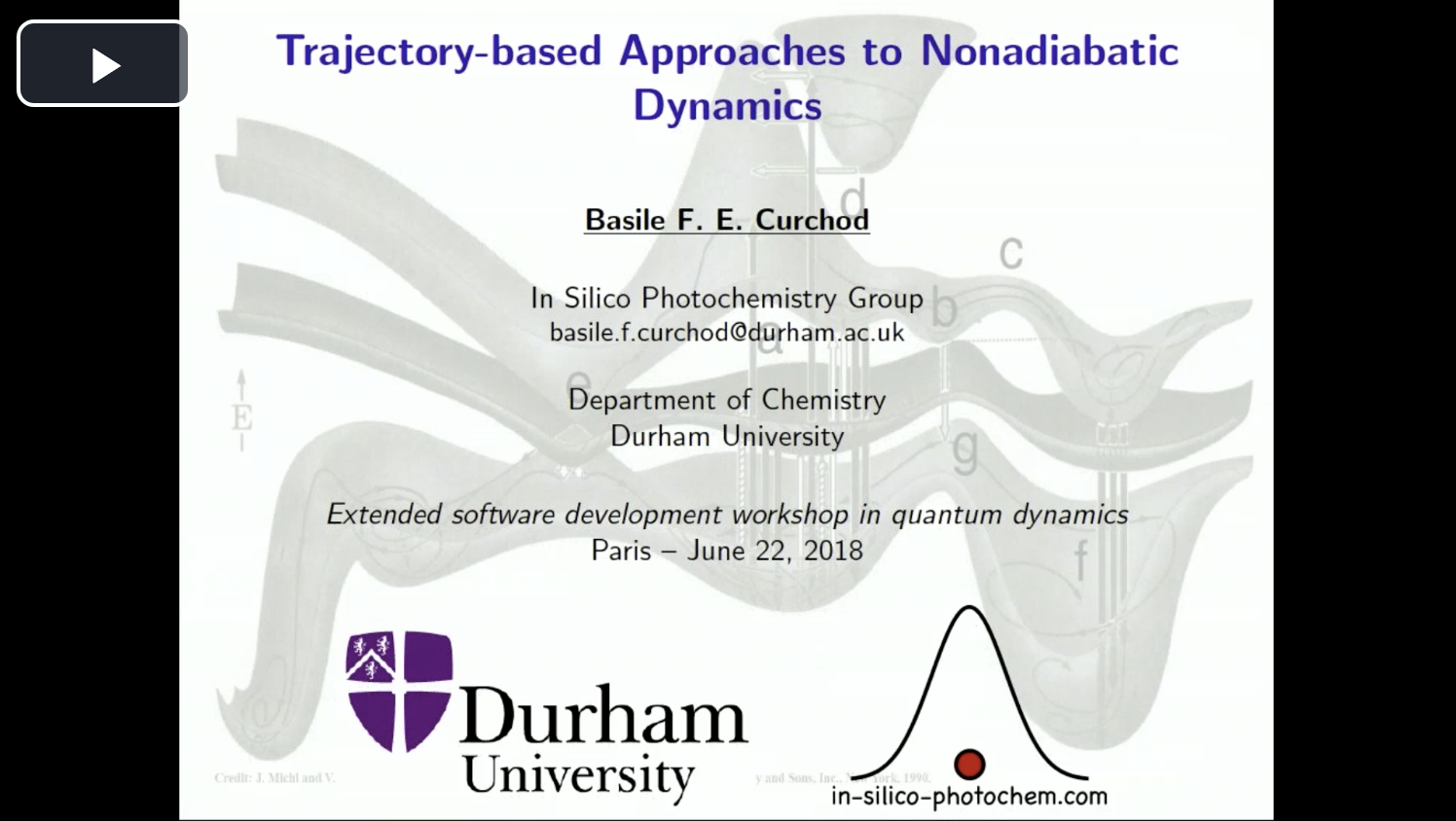
Trajectory-based Approaches to Nonadiabatic Dynamics, Basile Curchod
E-CAM ESDW in Quantum Dynamics
Saclay, June 2018
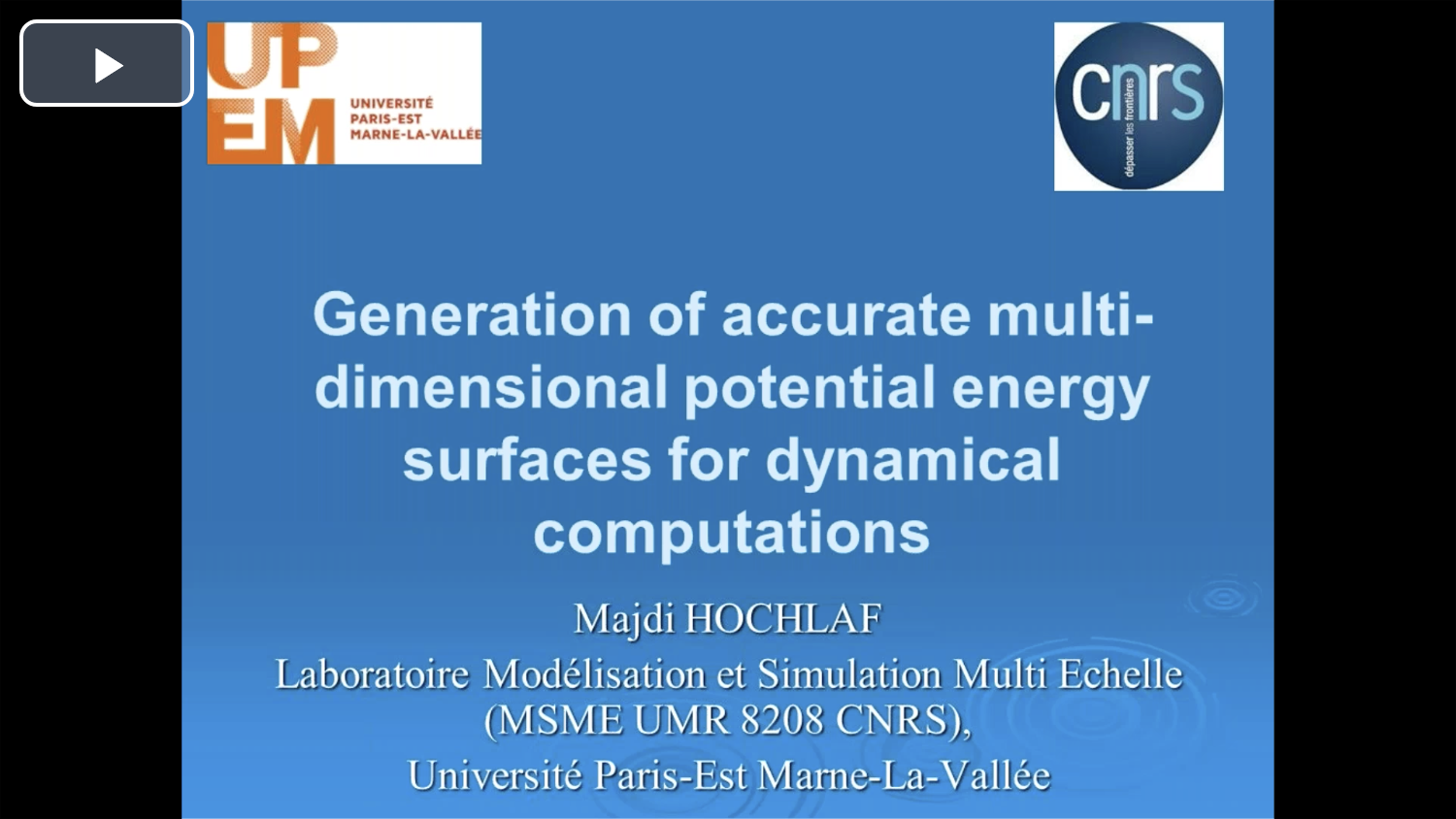
Generation of accurate multidimensional potential energy surfaces for dynamical computations, Majdi Hochlaf
E-CAM ESDW in Quantum Dynamics
Saclay, June 2018
Log in to see other lectures tagged under Quantum Dynamics.
Meso and Multi-Scale Modelling
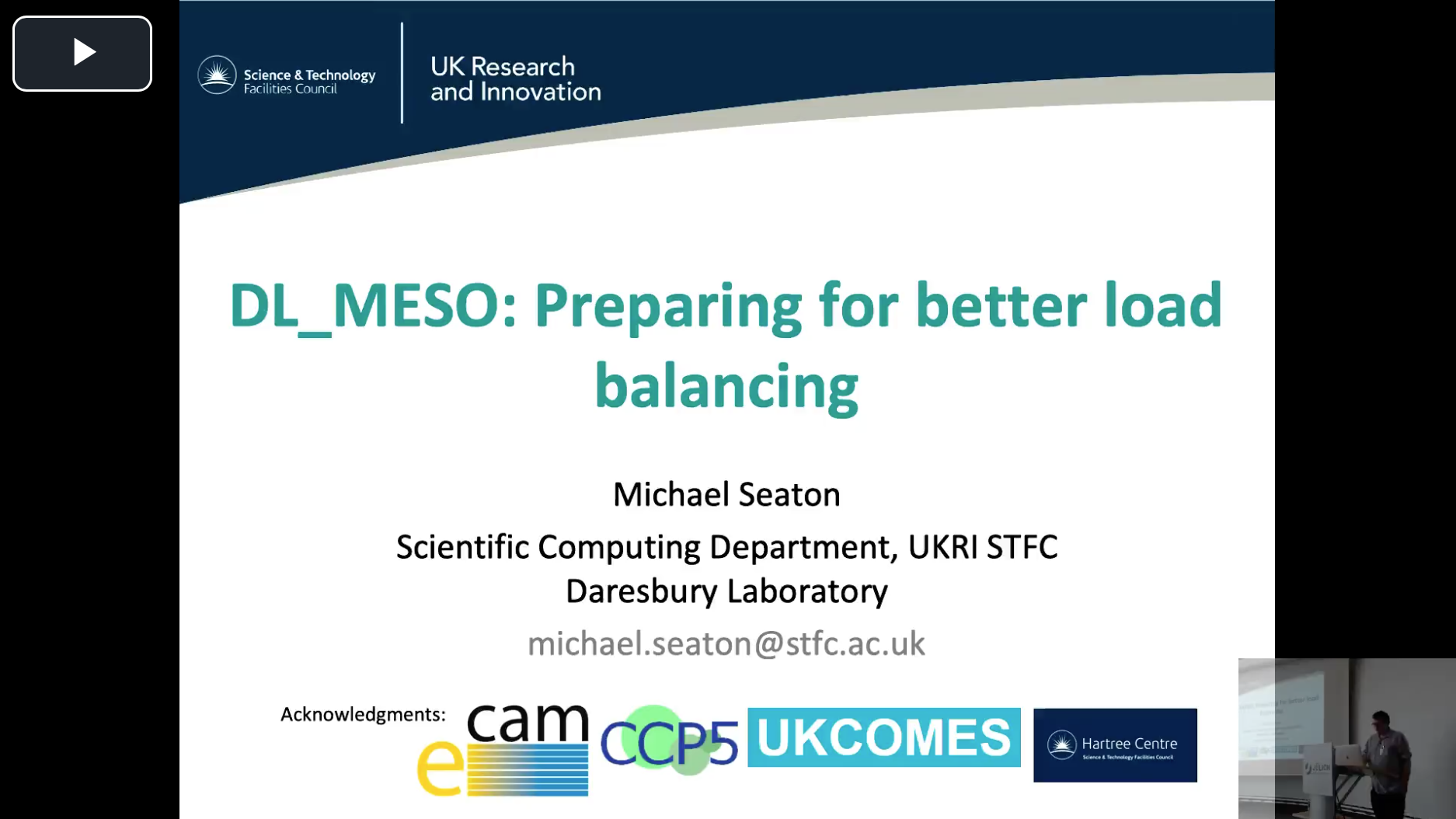
DL_MESO – Preparing for better load balancing, Michael Seaton
E-CAM Extended Software Development Workshop in Dynamic Load Balancing
Juelich Supercomputing Centre, June 2019
Log in to see other lectures tagged under Meso- and Multi-Scale Modelling.
E-CAM Libraries
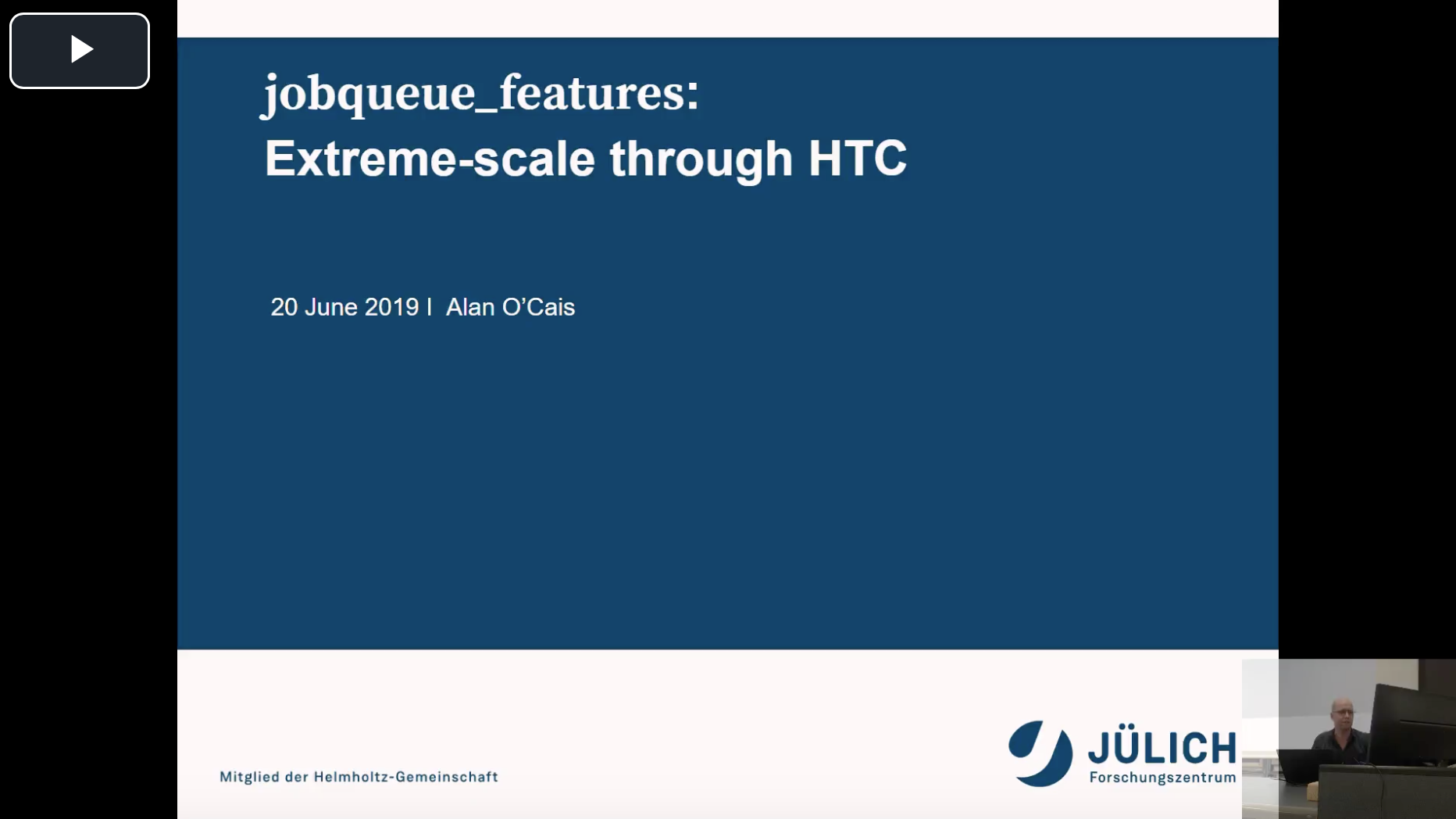
Introduction to E-CAM HTC Library: jobqueue_features, Alan O’Cais
E-CAM Extended Software Development Workshop in Intelligent HTC
Politecnico di Torino, June 2019
Log in to see other lectures tagged under E-CAM Libraries and Software Packages.
Software development best practices
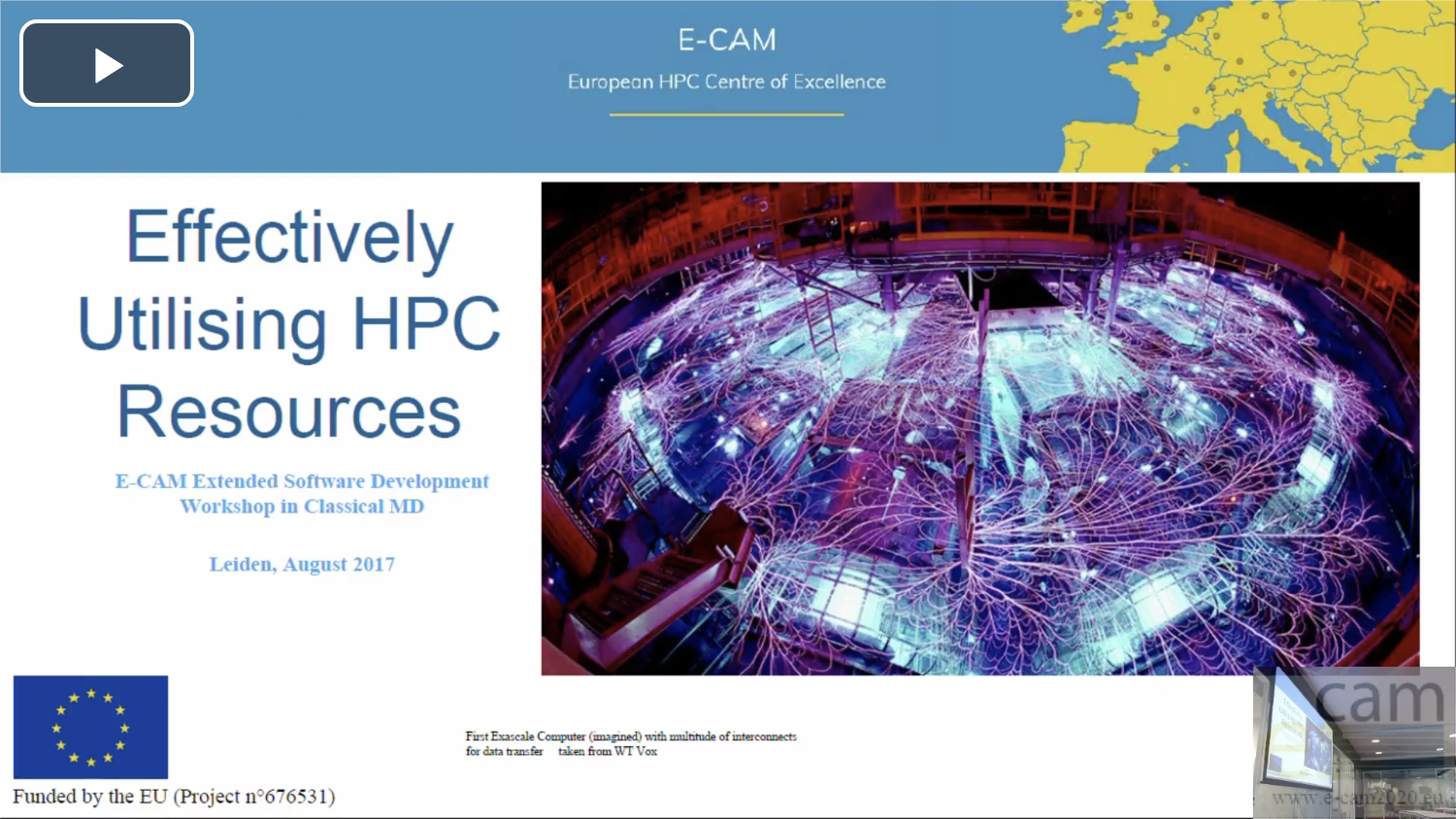
Effectively Utilizing HPC Resources, Alan O’Cais
E-CAM Extended Software Development Workshop
Leiden, August 2017
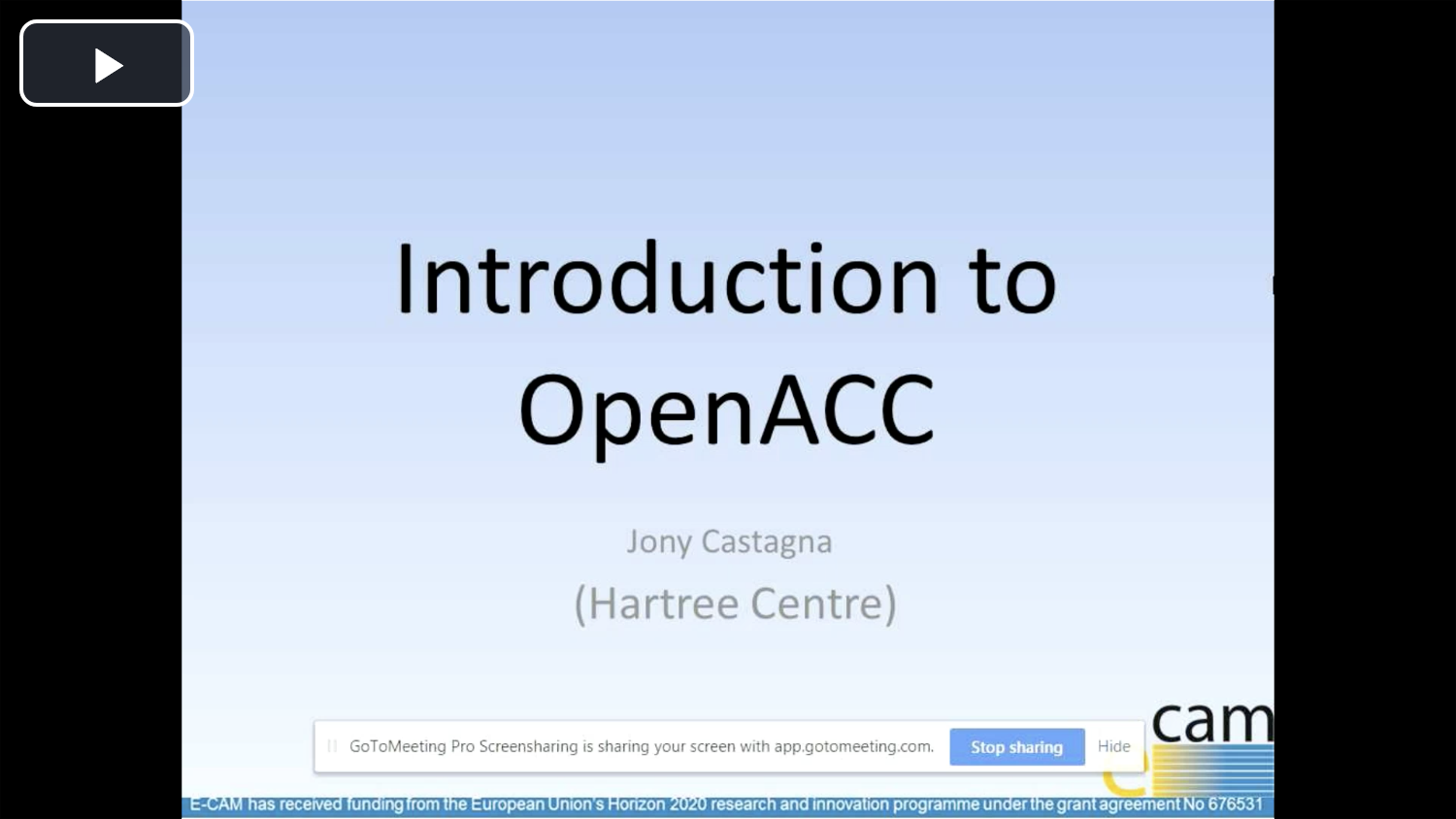
Introduction to OpenACC, Jony Castagna
E-CAM ESDW11: Quantum Dynamics
Saclay, June 2018
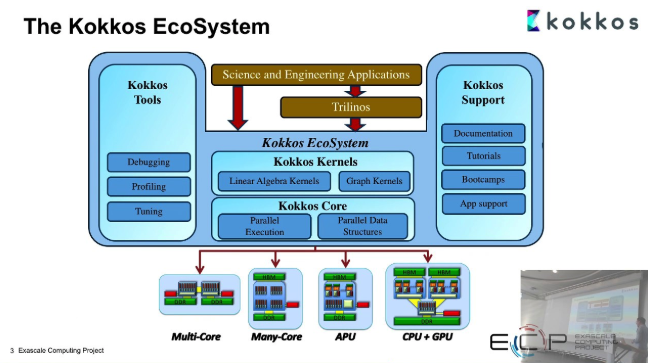
Introduction to kokkos, Christian Trott
October 2018
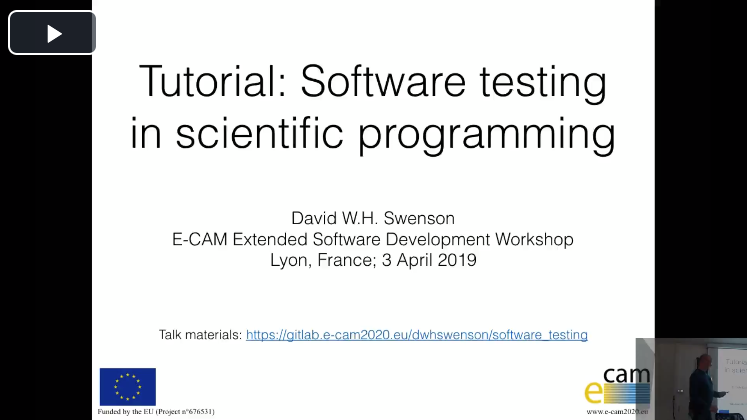
Software Testing in Scientific Programming, David Swenson
E-CAM ESDW: Classical
ENS Lyon, April 2019
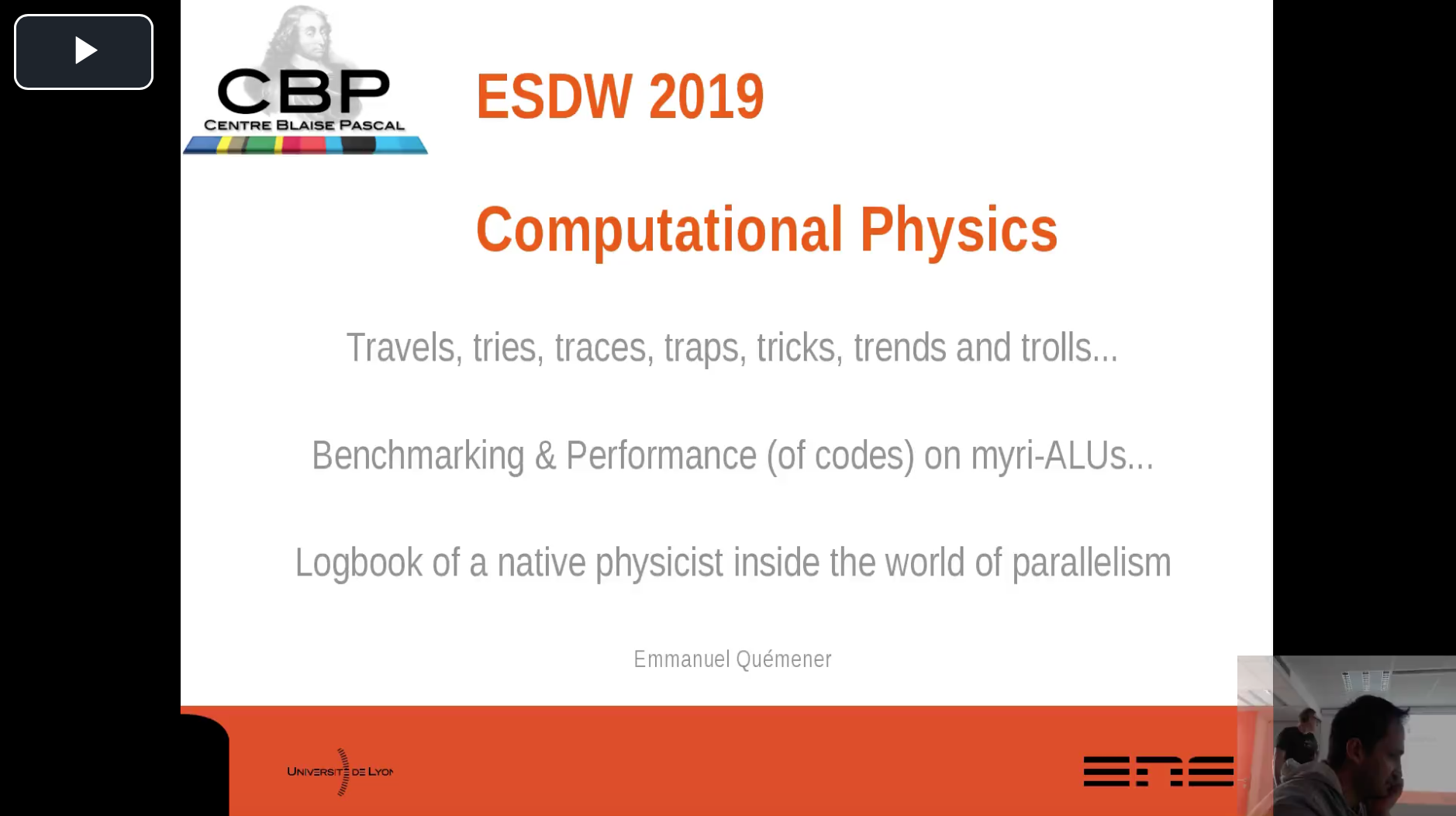
Benchmarking&Performance, Emmanuel Quemener
E-CAM ESDW: Classical
ENS Lyon, April 2019
